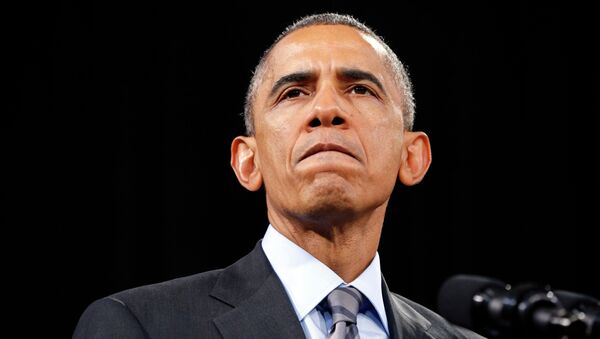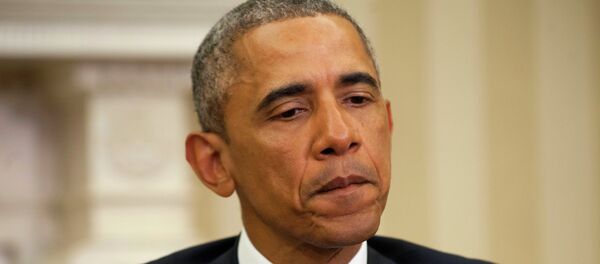"Sometimes we have to balance our need to speak to them about human rights issues with immediate concerns that we have in terms of countering terrorism or dealing with regional stability," the US president said in an interview to CNN in India on Tuesday.
Barack Obama emphasized that although Washington is closely collaborating with Riyadh in the field of counter-terrorism, his administration never misses a chance to warn Saudi authorities against human rights abuse.
Documents show IS & Saudi Arabia prescribe near-identical punishments for crimes http://t.co/ZoVVUqeHMn #ISIS #Saudi pic.twitter.com/kUEXqXCJiv
— Middle East Eye (@MiddleEastEye) 20 января 2015
Obama noted that some US allies feel uncomfortable and even frustrated when they come under pressure to carry out democratic reforms.
"And you know, some of them listen and some don't," Obama underscored, referring to Hosni Mubarak, the former president of Egypt and Washington's longstanding ally, who was toppled during Egypt's 2011 revolution.
"But the trend line is one that I will sustain throughout the rest of my presidency and that is to make an argument to those friends and allies of ours that if they want a society that is going to be able to sustain itself in this age, then they're going to have to change how they do business," Obama told CNN.
Saudi's role in the US-led campaign against the Islamic State in Iraq and Syria is crucial for Washington. Reuters stresses that US criticism of Riyadh over its human rights abuse "has normally been low-key" and will most likely "remain so."




